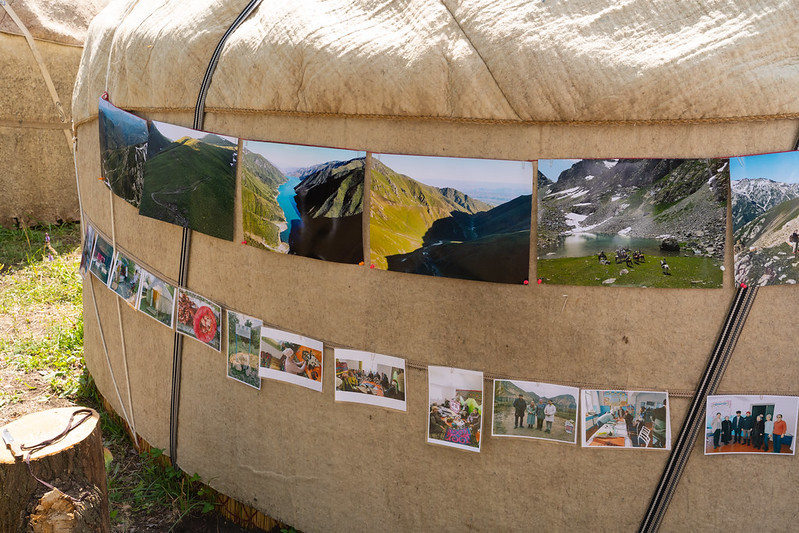Bishkek, December 6, 2024 — The United Nations Development Programme (UNDP) presented interim results of its work on developing adventure tourism in Kyrgyzstan. At a working meeting with national partners and business community representatives, key steps were discussed to form a sustainable, systematic approach to supporting the tourism sector in regions, with active involvement from local government bodies. The discussion was attended by Maksat Usubaliev, Director of the Tourism Department, Nurbek Saparov, Executive Director of the Kyrgyz Association of Tourism Organizations, and Albina Alimova, President of the Sustainable Tourism Association of Central Asia.
“Kyrgyzstan possesses unique natural resources and a rich cultural heritage, making it an ideal destination for adventure tourism. Developing this sector contributes to the socio-economic growth of regions, job creation, and increased income for the population. It is important to continue implementing environmentally oriented and sustainable approaches in tourism. UNDP has been our reliable partner in this area for many years,” said Maksat Usubaliev, Director of the Tourism Department.
In its activities, UNDP actively supports the development and implementation of national programs and priorities of the Government of Kyrgyzstan, such as the National Development Program of the Kyrgyz Republic until 2026, the development of green economy programs for 2024–2028, and sustainable tourism development for 2025–2030. Additionally, UNDP supports initiatives aimed at achieving the Sustainable Development Goals, ensuring the integration of international approaches into the national context.
UNDP actively promotes the creation of a sustainable and inclusive adventure tourism value chain. Through strategic partnerships and capacity-building activities, the organization helps local communities leverage natural landscapes and cultural heritage to create innovative tourism products.
“Developing adventure tourism contributes to economic growth, achieving the Sustainable Development Goals, and preserving ecosystems and cultural traditions. It provides local communities with opportunities to participate in sustainable development and gain economic benefits,” emphasized Monica Rizal, Deputy Resident Representative of UNDP in Kyrgyzstan.
At the end of the meeting, participants developed key recommendations aimed at improving the tourism industry:
-
Strengthening coordination between government bodies and the private sector.
-
Developing and implementing service quality standards at all stages.
-
Creating a system for sustainable management of tourist routes at the local level, involving stakeholders, including local government bodies.
-
Supporting green tourism through programs for small and medium-sized businesses, tax incentives, simplifying licensing, and educational initiatives.
-
UNDP’s inclusivity initiatives, including support for women’s entrepreneurship and ideas for people with disabilities.
UNDP also contributes to improving infrastructure, implementing environmentally clean practices, and supporting local entrepreneurs, which contributes to the diversification of the economy and the preservation of Kyrgyzstan's unique natural and cultural values.
UNDP's "Trade Assistance" project will continue strengthening the capacity of participants in the adventure tourism value chain through training and the implementation of service quality standards and best practices in green and sustainable tourism. The proposed measures will contribute to creating new opportunities for economic development in the regions, job creation, and strengthening Kyrgyzstan's position as a unique destination for adventure tourism.
About the UNDP “Trade Assistance” project: UNDP is implementing the fifth phase of the regional project “Trade Assistance in Central Asian Countries,” funded by the Finnish government. The project aims to support the countries of Central Asia (Kyrgyzstan, Tajikistan, and Uzbekistan) in ensuring inclusive and sustainable growth through promoting “green” value chains and enhancing the competitiveness of the economies of the three countries. The project contributes to the creation of more resilient, safer, and gender-sensitive economic structures through economic diversification and adaptation to new market and consumer trends.
 RU
RU
 KG
KG
 EN
EN

Add New Comment